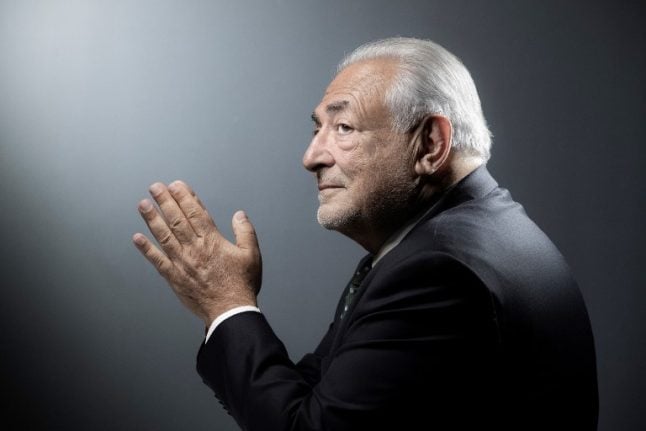The day after sex charges against him were dismissed in a sensational about-turn, Strauss-Kahn was holed up in a New York luxury rental residence and it was unclear even whether he had been able to pick up his passport in preparation for returning to France.
There was barely a sign of life inside the brick townhouse.
The curtained-off door opened just a crack when a florist delivered a bouquet of flowers and again, on a handful of occasions, when unidentified guests or staff left the building.
When a heavily bearded Hasidic Jew rang on the intercom and asked to speak to Strauss-Kahn, who is also Jewish, a woman — possibly his millionaire wife Anne Sinclair — replied in French: “He is very busy. He is not seeing anyone.”
Despite the scandal that forced Strauss-Kahn to quit the International Monetary Fund and shelve his hotly anticipated presidential bid, supporters say he still can return to public life.
Observers say it is unlikely the 62-year-old Socialist Party grandee can put the episode behind him in time to take on Nicolas Sarkozy in the 2012 elections.
But Strauss-Kahn’s lawyers said their client had done nothing criminal that should impede his future prospects, with star attorney Benjamin Brafman condemning prosecutors and the media for having rushed to judgment after his May 14 arrest on charges of trying to rape a Manhattan hotel maid.
Charges were thrown out after prosecutors said they could only prove Strauss-Kahn had had brief sex with the maid, but not that he’d used force.
“If you do something inappropriate, you don’t get prosecuted,” Brafman told NBC television’s “Today Show” program. “He paid a heavy price for a momentary lapse of judgment that was not criminal.”
Asked directly whether Strauss-Kahn might seek to return to public life in France, Brafman responded: “I think his options are wonderfully wide, he is a brilliant man and a brilliant economic mind when we need that most.”
Attorney William Taylor, who also represented Strauss-Kahn and was interviewed alongside Brafman, said: “I think he and his family will take some time and just relax.
“They will make whatever arrangements they want to make about where they want to live and when they want to move. And then I suspect he will gather his friends around him and make some decisions.”
The future of the maid, Nafissatou Diallo, might be less bright.
Prosecutors, who initially strongly backed her claims to have been forced into oral sex by Strauss-Kahn in his pricey Sofitel hotel suite, have slammed her for repeatedly lying.
The case was dropped after prosecutors said that the maid had lied so many times, both about details of the case and about her background, that she no longer made a credible witness in a he-said/she-said trial.
On Wednesday, the company that runs Sofitel said it would be talking to Diallo’s lawyers regarding her job.
For now, “Nafissatou Diallo is still an employee of the Sofitel New York,” an Accor spokesman said.
The maid’s lawyer continues to argue that his client has been denied her right to justice and that prosecutors turned their backs on the medical evidence. He has filed a civil lawsuit on Diallo’s behalf seeking unspecified monetary damages from Strauss-Kahn.
Brafman described Diallo as “either evil or pathetic or both” and suggested that unnamed “others” could have been using her for their own purposes.
Shortly after Tuesday’s ruling, Strauss-Kahn and his millionaire French wife Anne Sinclair celebrated with dinner at an Italian restaurant called L’Artusi in Manhattan’s hip Greenwich Village neighbourhood.
“This is the end of a terrible and unjust ordeal,” Strauss-Kahn told reporters outside the luxury Manhattan rental residence where he has spent much of the last three and a half months cooped up under house arrest.
“I’m eager to return to my country,” he said, pledging to speak at “greater length” once back in France.
But he still didn’t have his passport, which authorities confiscated from the then head of the International Monetary Fund at the time of his humiliating arrest.
A rare earthquake along the US east coast meant offices in New York closed early Tuesday and although Strauss-Kahn was free he was told to wait until Wednesday to recover the document.


 Please whitelist us to continue reading.
Please whitelist us to continue reading.
Member comments